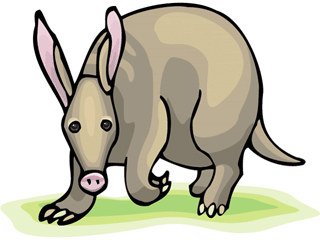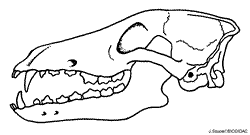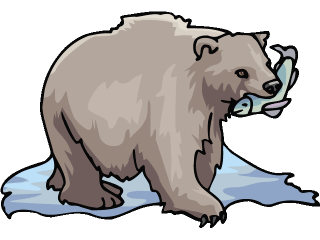 Chapter
36: Reading Worksheet Name ______________________
Chapter
36: Reading Worksheet Name ______________________
Section 36-1: The Mammalian Body
1. Mammals Share _______ Key Characteristics.
What are they? (fig 36-1)
_____________________________________________________________
_____________________________________________________________
_____________________________________________________________
2. What exceptional ability does
the mammalian kidney have?
________________________________________________
3. The primary function of hair is ____________________
4. Hair is adapted in some animals for defense. Describe an animal that uses
hair for defense. _______________________________________________
5. Mammals Have Diverse, Specialized _________________
6. Unlike other vertebrates, mammals only have ___________ sets of teeth.
7. Match the tooth to its function
| ______ incisors |
a. grinding |
| ______molars |
b. biting and cutting |
| _____canines |
c. stabbing and holding |
8. It is possible to determine a mammals diet by examining its _____________
9. Compare the molars of a carnivore to the molars of a herbivore.
_____________________________________________________________
_____________________________________________________________
10. What type of mammal would this skull belong to:
_________________________________
11. Do all mammals have teeth? ____________
Name one that does not? _________________________
12. Mammals Maintain a High ________________________________
13. What are some advantages of endothermy?
_____________________________________________________________
 14.
Respiration in mammals is aided by the ________________________
14.
Respiration in mammals is aided by the ________________________
15. What happens when the diaphragm contracts?
_____________________________________________________________
16. Mammals have a ________ chambered heart and a ______________ loop circulatory
system.
"Up Close: Grizzly Bear"
 17.
What is the scientific name for the grizzly bear? ____________________
17.
What is the scientific name for the grizzly bear? ____________________
18. What does a grizzly bear eat? _________________________________
19. Why is the bear called a "grizzly" bear? __________________________
20. Do bear claws retract like a cat's? ____________
21. Grizzly bears rely primarily on what sense? _______________________
22. When are bear cubs born? ______________________
23. Name 3 states in the US that have grizzly bears? _______________________________________________________________
24. Mammals _____________ and _______________
for their Young
25. What is weaning? ___________________________________________
What group of mammals have the longest period of dependency on their
parents? ____________________
NAME________________________________________
Section 36-2: Today's Mammals
1. Mammals Have the Most Diverse
_______________ of All Vertebrates.
2. What do bats and whales have in common? ____________________
_____________________________________________________________
3. Mammals ________________ in One
of Three Ways
4. What are the three groups present day mammals are divided into?
_____________________________________________________________
5. The most primitive group of mammals is the ______________________
6. Give two examples of monotremes: _____________________________
7. Name two ways the monotreme is like a bird.
_____________________________________________________________
8. How does a baby platypus get milk from its mother?
_____________________________________________________________
9. Name four marsupials: _______________________________________
10. Describe the development of a marsupial.
_____________________________________________________________
_____________________________________________________________
11. What is the placenta? _______________________________________
_____________________________________________________________
12. The period of time between fertilization and birth is the _________________
13. What is keratin? _____________________________________________
14. What does a deer use his antlers for? ______________________________
15. Give two examples of domestic mammals: __________________________
16. Where do mules come from? ______________________________
17. Most of Today's Mammals Are _______________________
18, Placental mammals inhabit all continents except ______________________
19. List the 12 main orders of Mammals and give an example of each.
20. List the remaining seven (less
common orders) and give an example of each (page 826)

 Chapter
36: Reading Worksheet Name ______________________
Chapter
36: Reading Worksheet Name ______________________ 14.
Respiration in mammals is aided by the ________________________
14.
Respiration in mammals is aided by the ________________________ 17.
What is the scientific name for the grizzly bear? ____________________
17.
What is the scientific name for the grizzly bear? ____________________